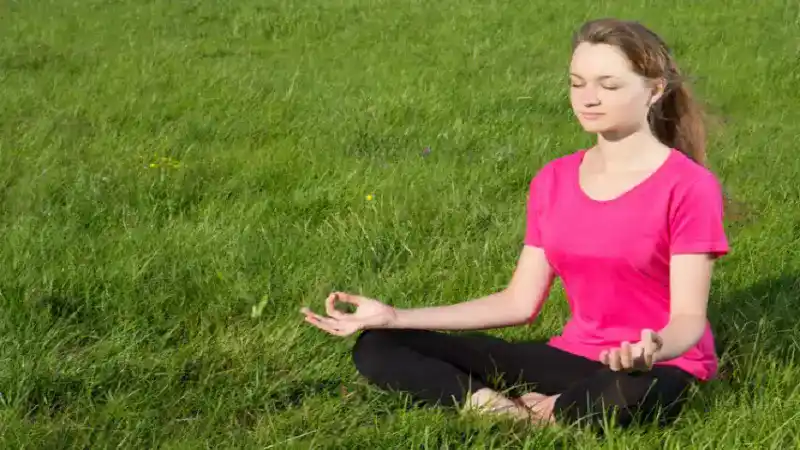Mental health is increasingly becoming a serious health issue just like physical fitness in the current times. Regular physical exercise when included in the usual routines can have drastic impacts on the mental state of an individual. Where and how does physical activity help? Is it in preventing depression and anxiety? Does it help in enhancing moods and self-esteem? Is there other psychological activity that is beneficial with physical activity? Let’s find out.
How Physical Activity Reduces Anxiety and Depression
Exercise is a powerful weapon in the fight against anxiety and depression. Several researches confirm that regular exercise can achieve comparable results with medications or psychotherapy in treating such disorders as anxiety and depression especially when both are mild to moderate. This is due to the release of endorphins, the body’s ‘happiness chemicals’ during such activity, which act to relieve stress and reshape one’s mood. Exercise has also been proven to ameliorate one’s stress-related neuro brain activities by decreasing one’s physiological correlated activities such as heart rate, and blood pressure and uplifting general mood.
Moreover, running, cycling, or swimming – all forms of aerobic exercise – were associated with a decrease in systolic blood pressure and levels of heart rate anxiety, as well as panic attacks and obsessive-compulsive disorders. Physical activity reduces excessive stress reactivity, encourages relaxation, and can increase mental fortitude substantially.
Improving Mood and Self-Esteem Through Exercise
Exercise contributes to self-esteem, stress levels, and many other positive aspects, such as self-control. This feeling of calm comes from the endorphins that get released after we engage in physical activities. This may help lift mood and fill people with self-worth, overcoming depression and anxiety. Besides, performing physical activities repeatedly can increase an individual’s motivation and feeling of personal value especially when it comes to attaining fitness objectives or other milestones.
In addition to mood enhancement, physical activity also improves such abilities as recollection and attention which hormonal fluctuations can also disturb. Research has shown that exercise increases the size of new nerve cells within the hippocampus – a brain region responsible for emotion regulation – which positively affects memories and decision-making values.
How exercise is helpful in stress management
The fact is that exercise is one of the best ways to handle stress. It even lowers the level of a stress hormone called cortisol which promotes anxiety management and aids relaxation. Keeping active regularly also improves sleep, which is essential for mentally healthy individuals. Better sleep may lead to stable emotions which makes it possible to feel active and relaxed all through the day.
Enhancing Cognitive Function
Not only does regular exercise enhance mood, but it also improves cognitive capabilities. Physical engagement regularly helps with attention, memory, and effective functioning of the brain. It also lessens one’s probability of developing memory loss-related disease and dementia in old age. This is because there is the formation of new brain cells especially in the regions responsible for learning and memory during exercising. Therefore, as we grow older, there will be the preservation of cognitive capacity as a result of active lifestyle participation.
Practical Tips for Incorporating Exercise into Your Daily Routine
While attempting to practice how to exercise regularly, many people feel that it is an insurmountable task. But this does not have to be the case. Here are some positive suggestions to get you started:
- Make Small Steps: Start exercising for short periods like for ten minutes by going for short walks, and increase the length as well as the intensity of the exercises over some time. This method can help in the formation of habits without getting stressed out.
- Select an Interesting Program: What is more important to the sustenance of the routine exercise is that the person should choose something they will enjoy. It could be swimming, cycling, dancing, hiking, or anything else you like, if something you enjoy is included, it would be easier to proceed with video exercise.
- Make it Routine: Schedule some time for physical activity every day. Whether working out in the morning, having a stroll during lunch, or doing yoga at night, doing such activities regularly prevents mental challenges.
- Get Social Support: Trying to get some exercise with friends or taking a class will probably help to get you more motivated and find it a more pleasant experience. It will also improve social interaction, which is important for overall health.
Different Types of Exercises will Provide you with Unique Benefits
- Aerobic Exercise: Exercises such as jogging, cycling, and swimming have been proven to be beneficial to a person’s psychological well-being. They help decrease depression and anxiety symptoms and improve mental health as well. Short but frequent bouts are already beneficial for mood and concentration even on the same day or immediately after the exercise.
- Mind-Body Exercises: Yoga, Tai Chi, and Pilates are performed through active movements, thoughts, and breathing patterns. They help alleviate stress, anxiety, and depression and build self-esteem through feelings of calmness and groundedness rather than hyperactivity.
- Resistance Training: The use of weights and bodyweight workouts also improves mood and self-confidence. Resistance training is cited as an effective tool to alleviate appraisals of both anxiety and depression and to enhance general health when carried out most of the time
Overcoming Barriers to Regular Exercise
It is not uncommon for one to experience challenges when embarking or maintaining an exercise regime. This is the reason why some solutions should be provided for eliminating common barriers:
- Lack of Time: Include small intervals of physical exercises in the entire day. Simple things such as taking the staircases, squatting while waiting for coffee, or taking a quick stroll during lunch can assist a lot in this.
- Motivation Fluctuations: It is expected that at some point in time, one shall experience a drop in motivation. To avoid these dynamics, list down different forms of exercises that you will be practicing. Such may include learning new things, changing where you work out, or finding simple challenges.
- Physical Limitations: After consideration of the situation make yourself a program of the exercises for you. Reduced exercise solutions for those who don’t have time or are just beginning a physical education program such as walking swimming or even yoga.
Engaging in regular exercises helps enhance one’s mental health. From decreasing anxiety to making one’s mood better or even enhancing one’s self-esteem and cognitive function, physical exercises have a lot of psychological advantages. For that reason, we at 247dct.org would prompt each person to engage in everyday physical activities. It is helpful to consider that little undertakings go a long way in enhancing your state of mind. So, put on your sports shoes, look for something that you enjoy doing, and START caring for your health in its full respect.
By understanding how to harness the power of exercise, you are equipped to take charge of your mental health and general wellness.




